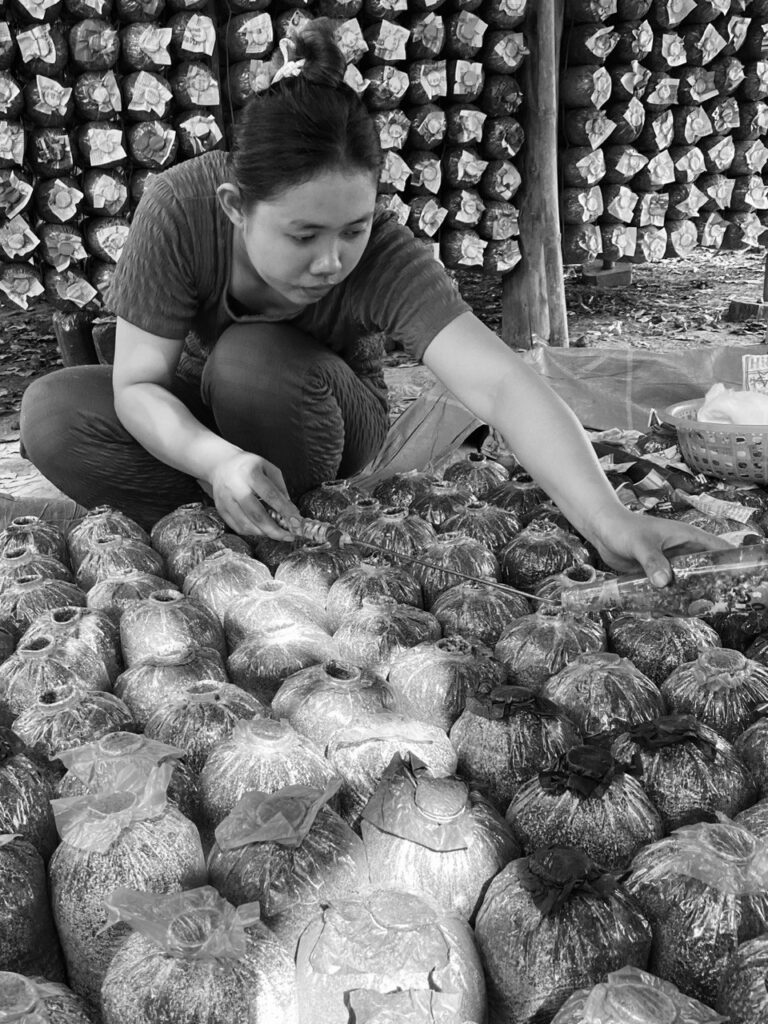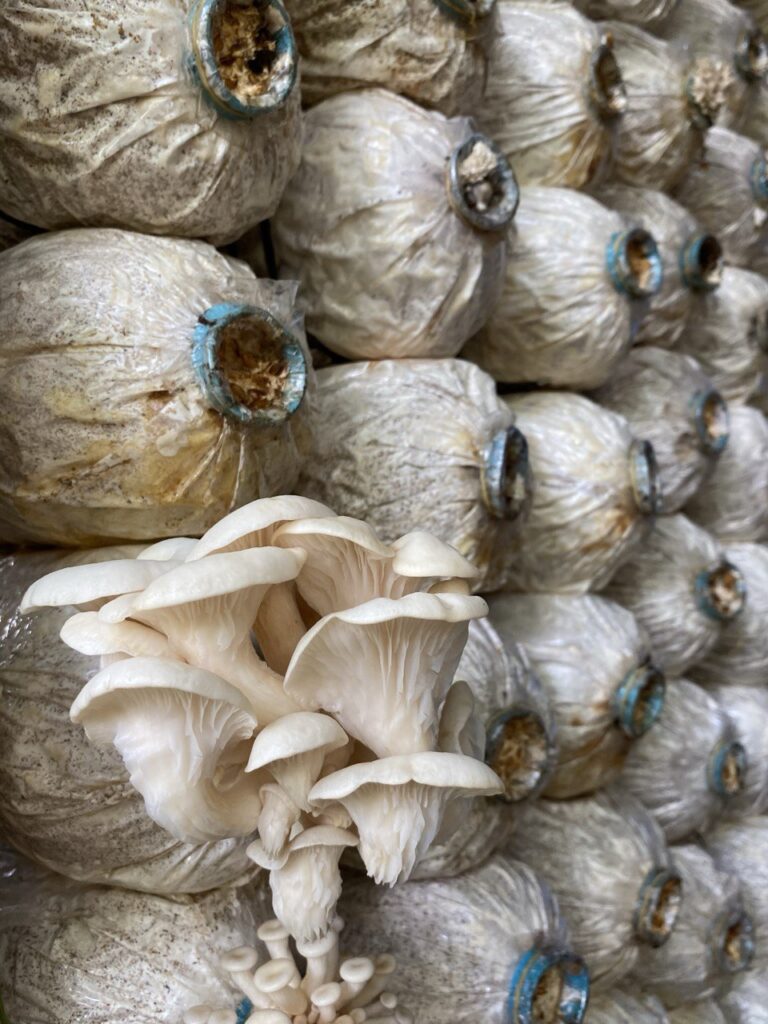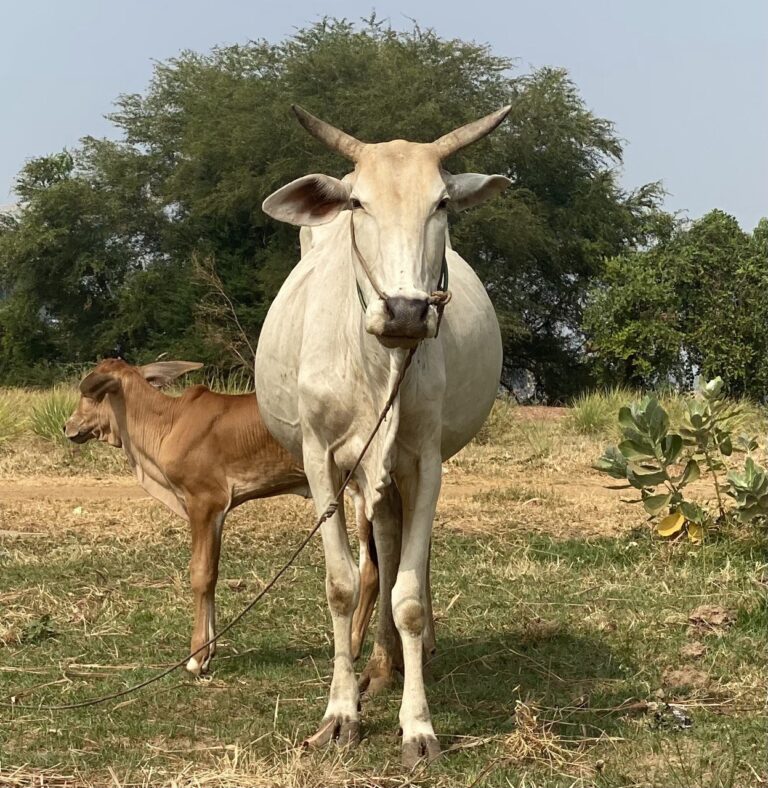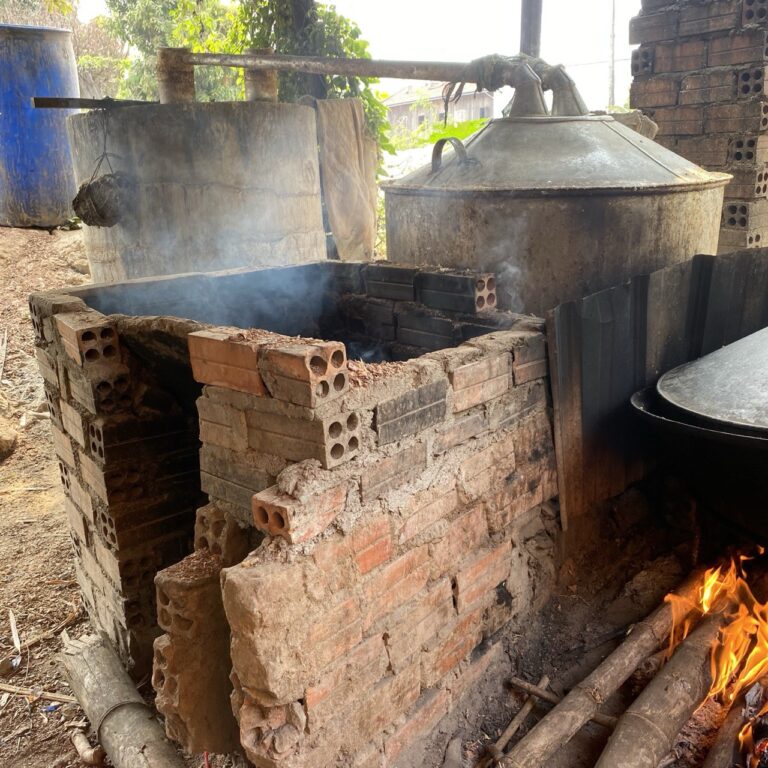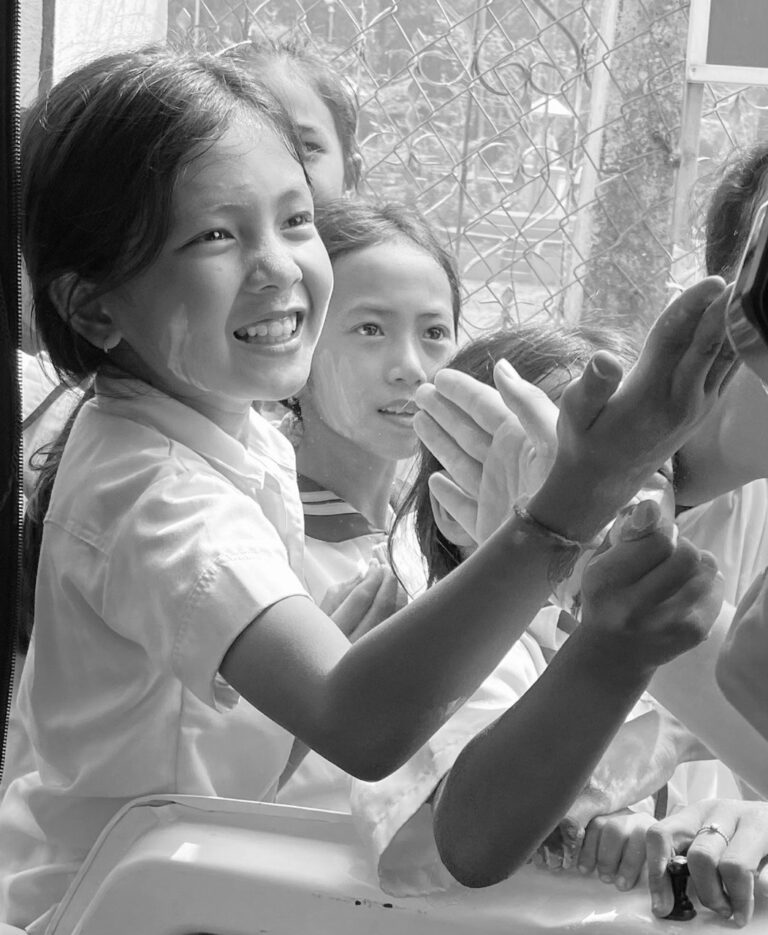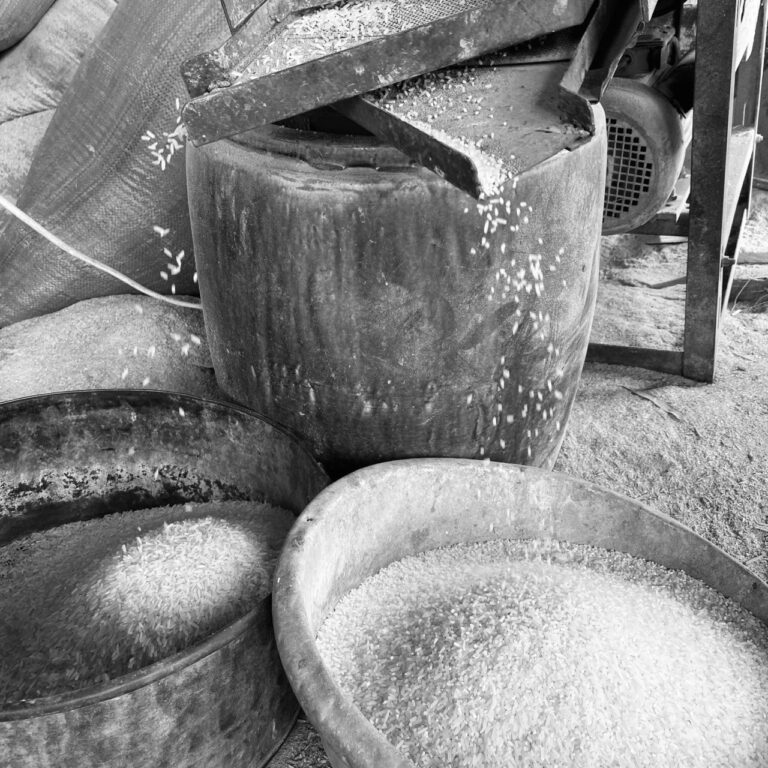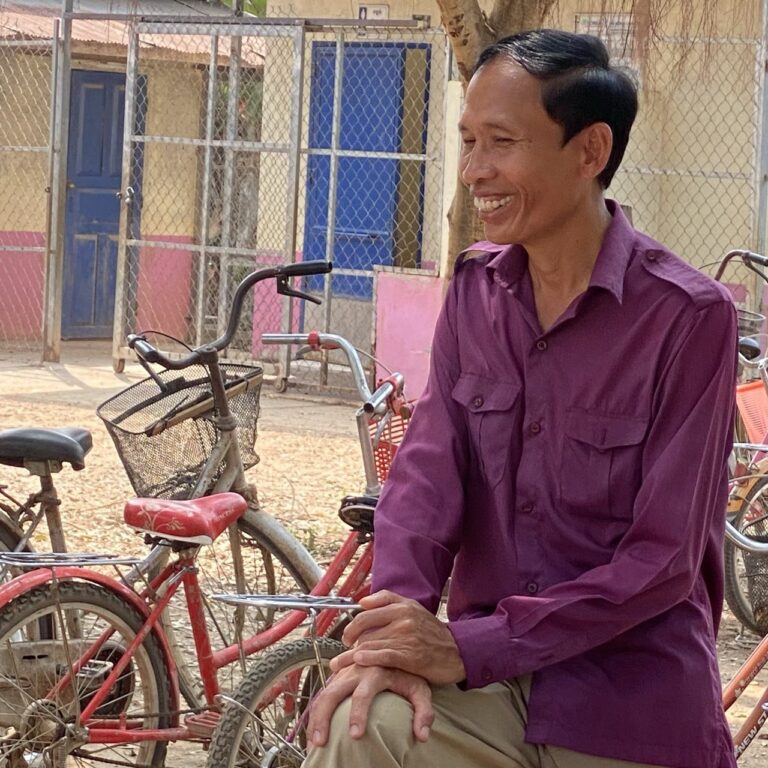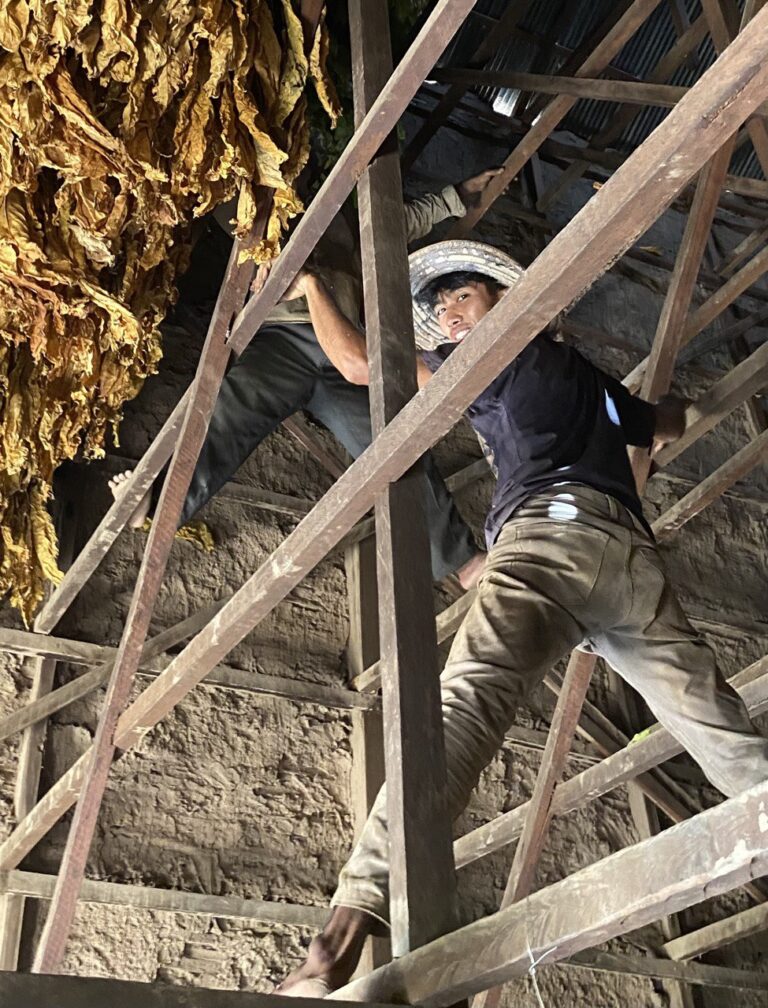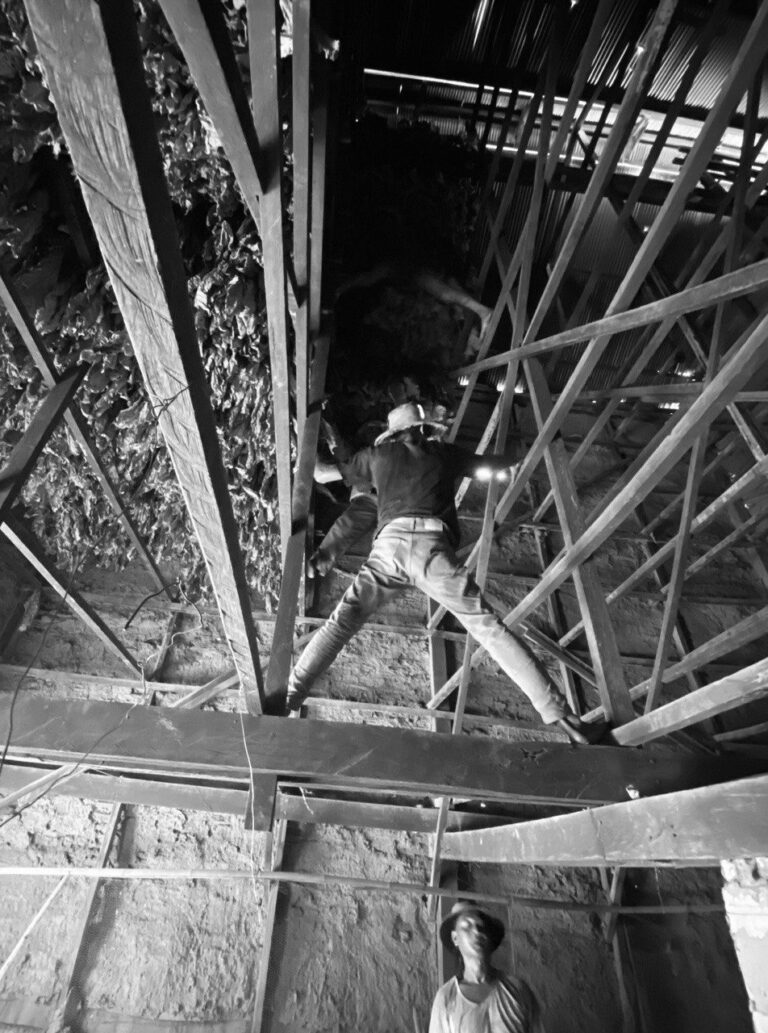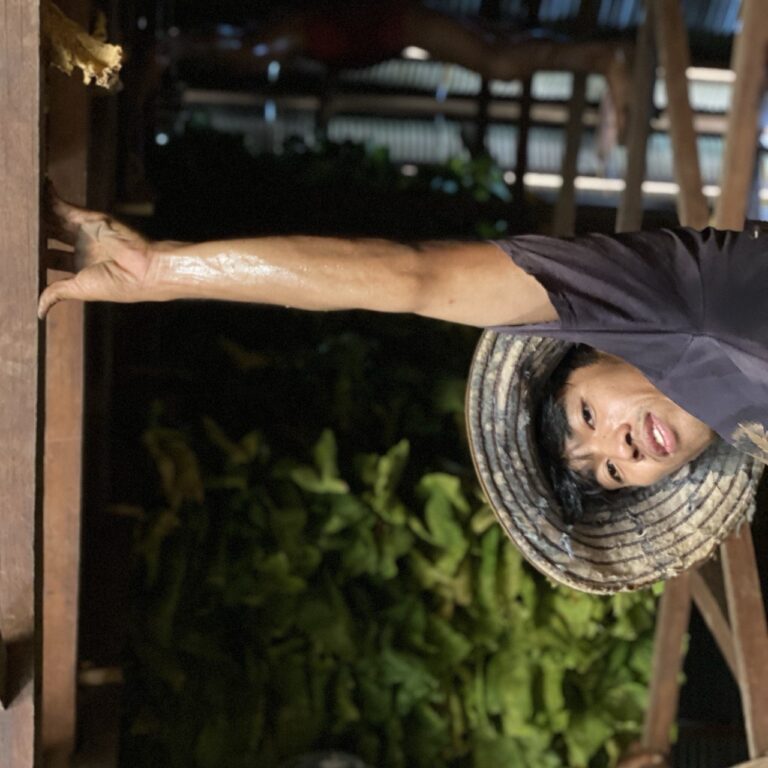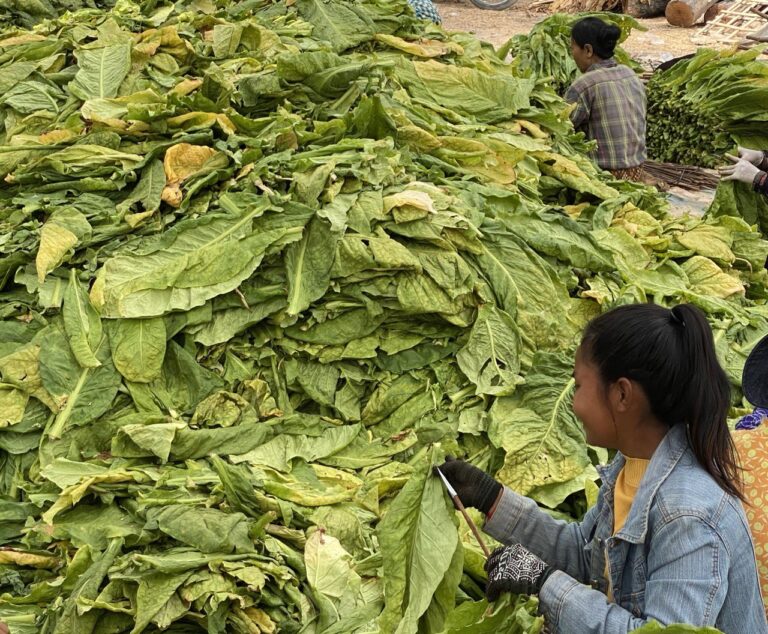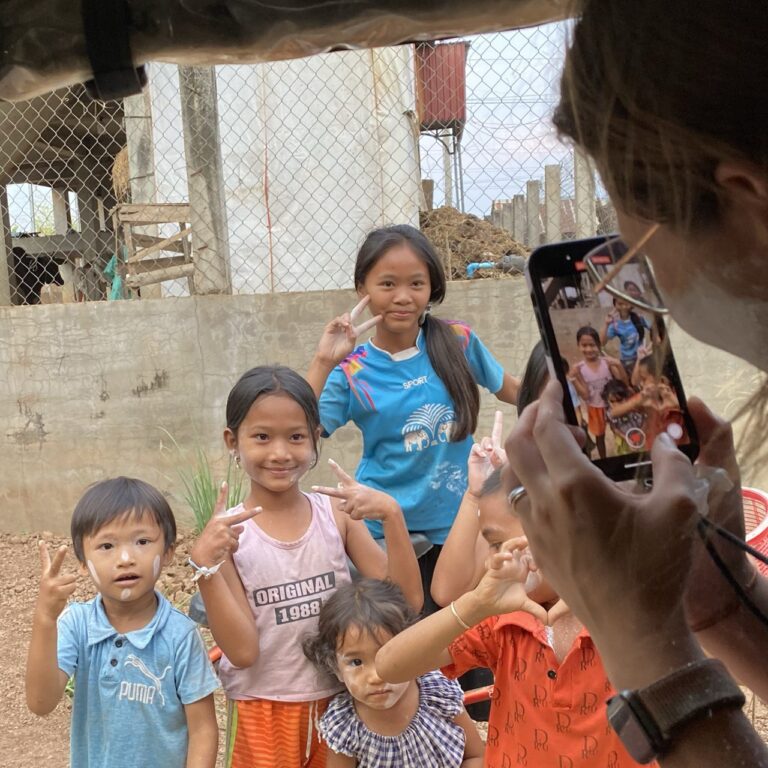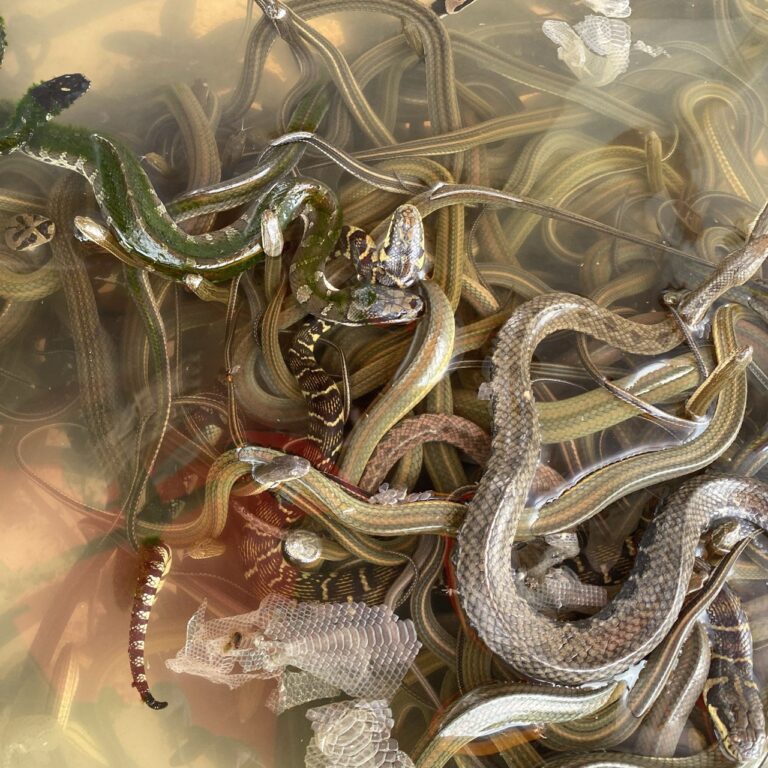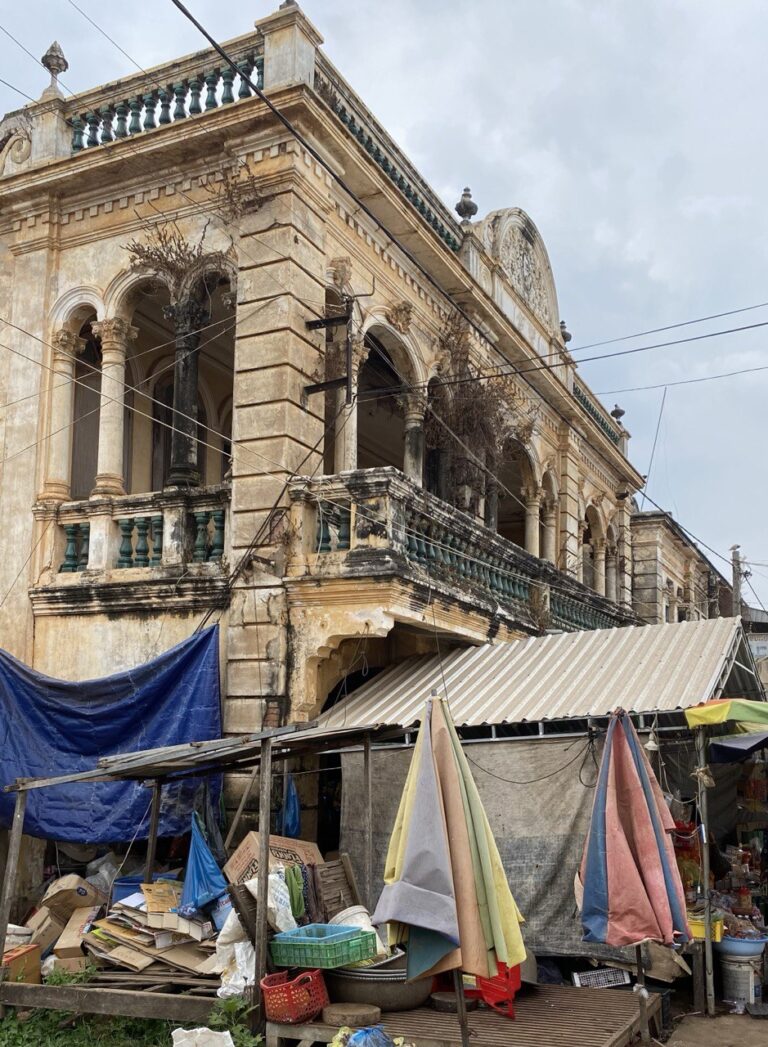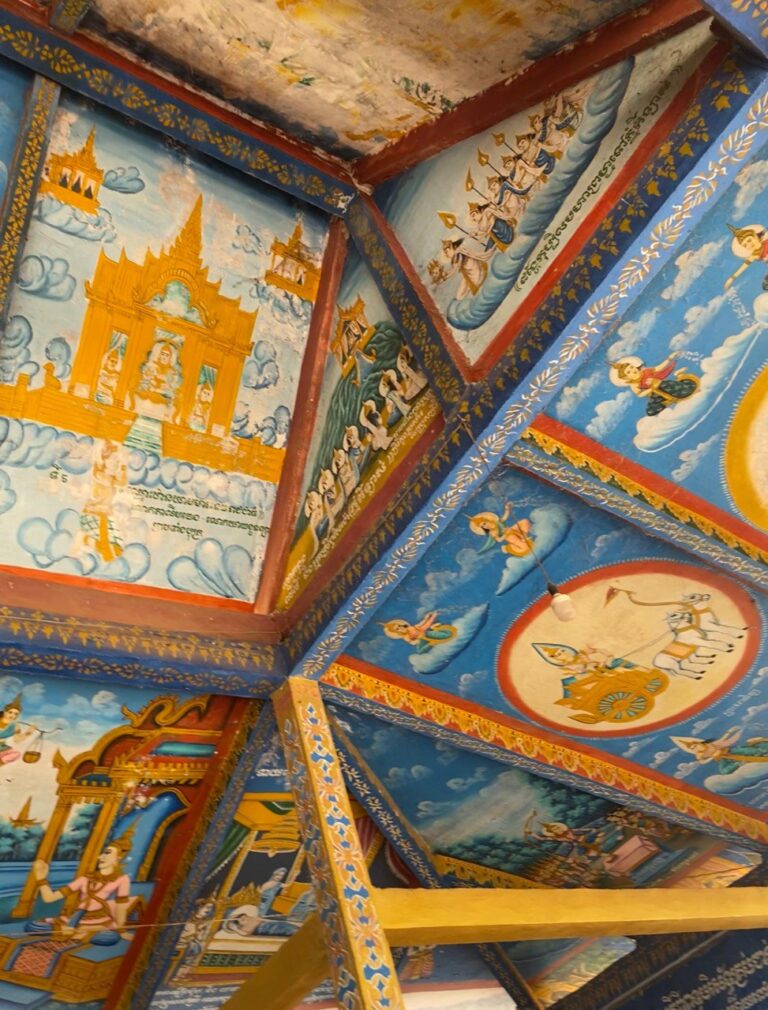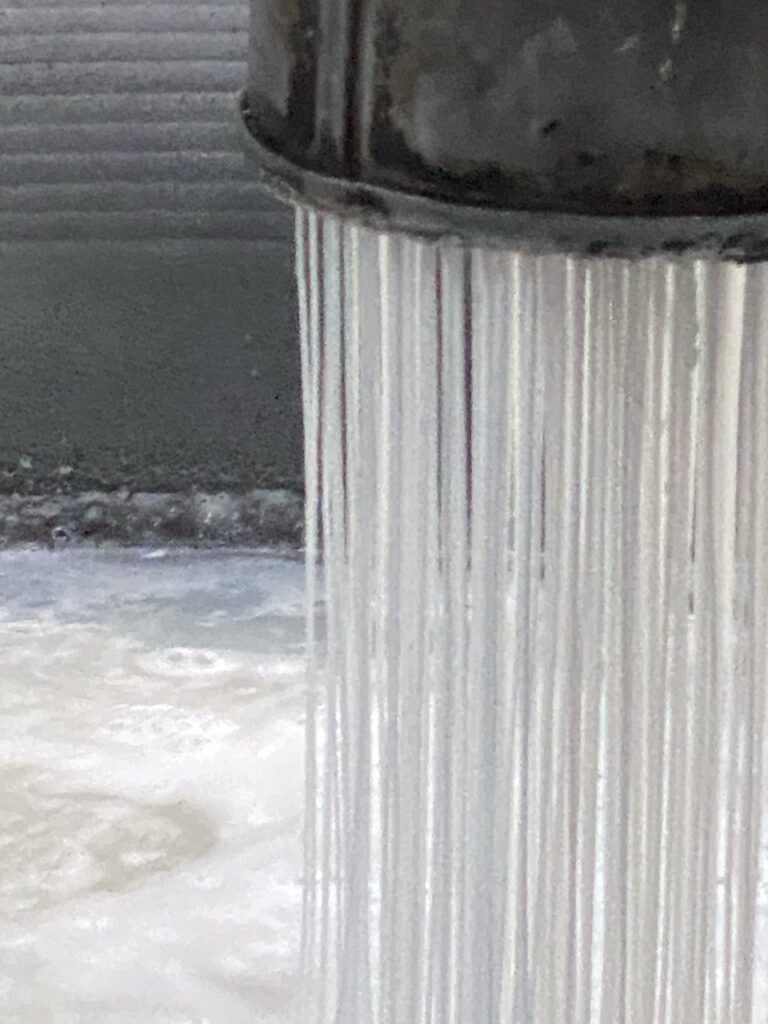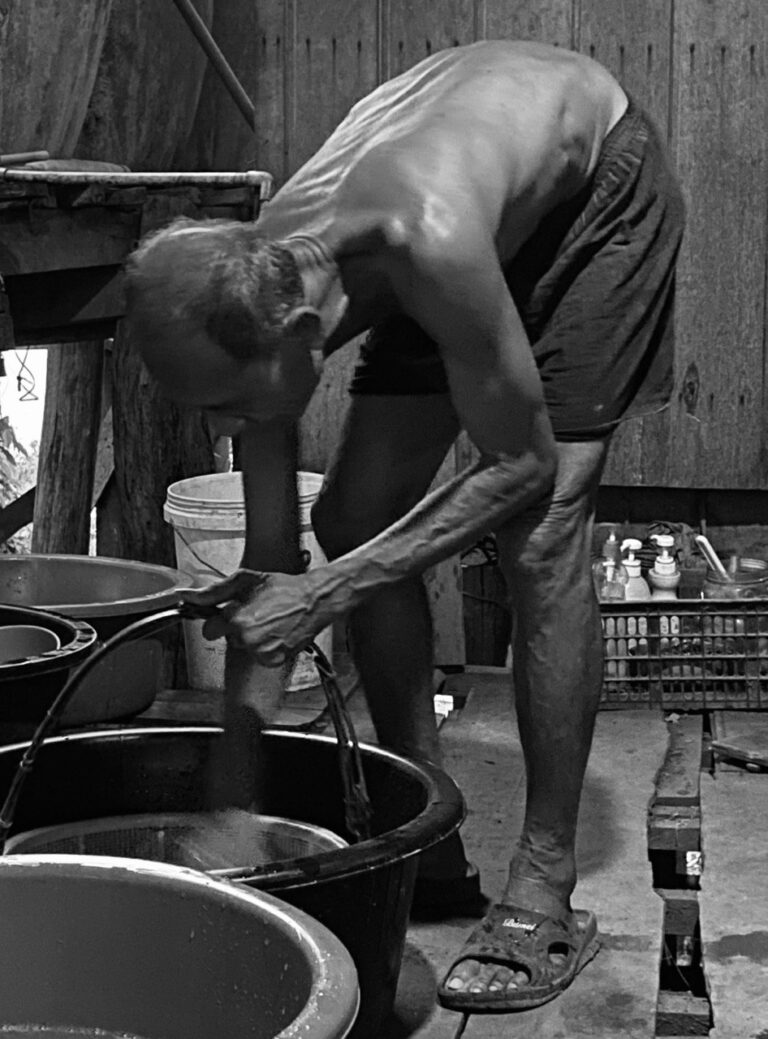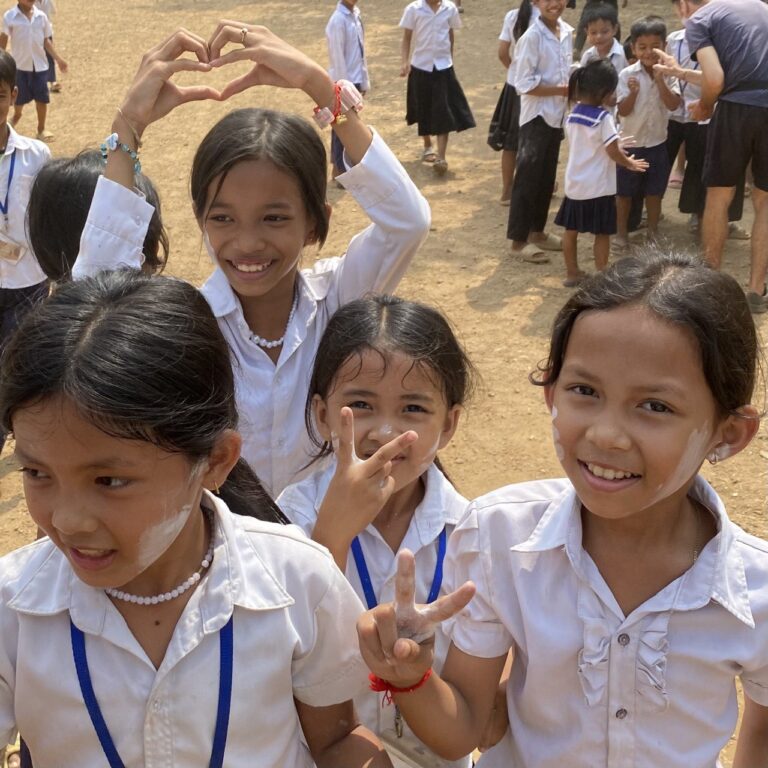
After the first couple of hours out on Suk’s tuk tuk tour, I said to Virle, I’m going to have to start taking notes, otherwise I’ll never remember all the things we’re seeing.
I’m glad I did. It started out with a visit to a mushroom farm, where a woman was putting a few scrapings into the top of each of a hundred plastic bags, each bulging with fortified and sterilised powdered rubber tree wood (‘it needs the oil’), before sealing the tops with a scrap of paper and rubber band, ready for mounting in rack upon racks, where they will sprout mushrooms for six weeks, to be sold at market for $1.75 a kilo. It looked like a very hard dollar. And it set the tone for the day.
Suk has made it sort of his homestead mission to show tourists the daily lives of ordinary Cambodians. And lives of long days and hard physical labour they are. From rice wine (moonshine, in all but name) makers through women assembling little banana leaf-wrapped sachets of sticky rice – 800 a day, if I heard rightly – to others threading tobacco laves onto sticks, to be hauled in 15kg racks up to the rafters in tall, multi-story drying houses, people were engaged in occupations that can’t have changed in hundreds of years, but surely won’t exist in 20 more. And all, we were told, for wages of three to five dollars a day.
We also got to visit some tumbledown buildings left over from the colonial era – barely 100 years old, but mildewed and derelict, once so elegant, now so sadly neglected; another (yet another!) Buddhist temple, gorgeous with colour; and, in the highlight of the day, a junior school, where the children were unbelievably sweet: happy, engaged, curious, joyously playing Grandmother’s footsteps with Virle, asking where we came from and how old we were, and loudly singing the ABC song, and reciting numbers from one to twenty. (The chap in the purple shirt is their headmaster – he seemed a man very happy in his mission, and was clearly held in great affection by his 400 or so charges.)
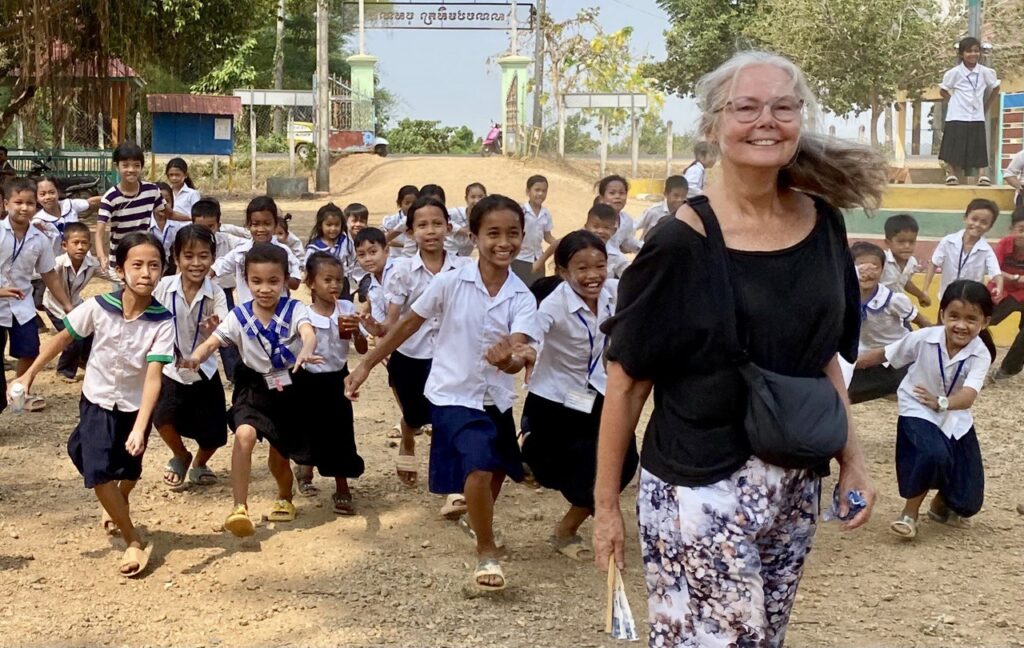
And then just to put the seal on the deal suddenly out of nowhere we got hit by the mother of all tropical storms. Branches ripped off trees, mangos raining down, trees coming down. Corrugated iron unpeeling from roofs. It was mad! And it was great!
Then off to a roadside stall to sample the delights of dried snake – which, I have to report, are few – before it was time to go and watch the making of rice noodles. One man kneeding dough into balls; another dropping them into a tube suspended above a pan of boiling water, then using a ratchet lever, like a car jack, to force it through tiny holes, extruding down into the water, where it swirled around for a few minutes before being dipped out in a colander, rinsed through a series of bowls of water, then dumped in front of a young woman, who took it handful by handful, squeezing each handful gently, before placing it in a wide bowl, presumably to dry.
It seemed an amazingly labour-intensive production process for such a basic staple. Pre-industrial, almost medieval. And you couldn’t help thinking that it can’t be long before it’s wiped out by enormous factories full of gleaming machines. Almost all the hard, tedious, sweaty labour we witnessed throughout the day could be done so much more easily and efficiently with even the most basic technology – and surely it can only be a question of time. But what, then, are the people to do? Aye, there’s the rub.
By the time we got back we were shattered, so just time for a lovely meal with our fellow-homesteaders before crashing out, ready for the dawn chorus of cockerels from directly underneath our floorboards.
I have to say it was probably the single most exhausting day of our entire holiday – and unquestionably one of the very best. Here’s to you, Suk, and the people of Kratie. Immense respect. We are not worthy.

